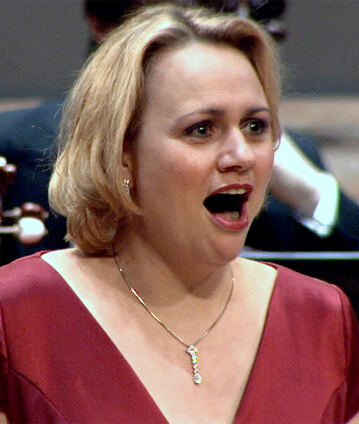Interview
Michael Boder en conversation avec Fergus McWilliam Les « Wesendonck-Lieder » de Wagner avec Anja Kampe et Michael Boder

Ce concert dirigé par Michael Boder propose un programme original et varié. À l’éblouissante Celebration of some 100 x 150 notes d’Elliott Carter succèdent la Symphonie « Rhénane » de Schumann, à la fois tonique et sereine, et le Concerto pour orchestre de Witold Lutosławski, l’une des œuvres les plus accessibles du compositeur mais aussi l’une des plus percutantes. Nous entendons aussi la soprano Anja Kampe, une habituée de Bayreuth, dans les Wesendonck-Lieder passionnés de Wagner.
Berliner Philharmoniker
Michael Boder
Anja Kampe
© 2009 Berlin Phil Media GmbH
Interviews liées au concert
Artistes
Nos suggestions
- Une soirée Strauss avec Christian Thielemann et Anja Kampe
- Philippe Jordan dirige la « Symphonie alpestre » de Strauss
- Marek Janowski dirige la Sixième de Bruckner
- Ouverture de la saison 2025 : Kirill Petrenko dirige Brahms, Zimmermann et Schumann
- Kirill Petrenko dirige Mendelssohn et Chostakovitch
- Nicola Luisotti dirige le Gloria de Poulenc et la Cinquième de Prokofiev